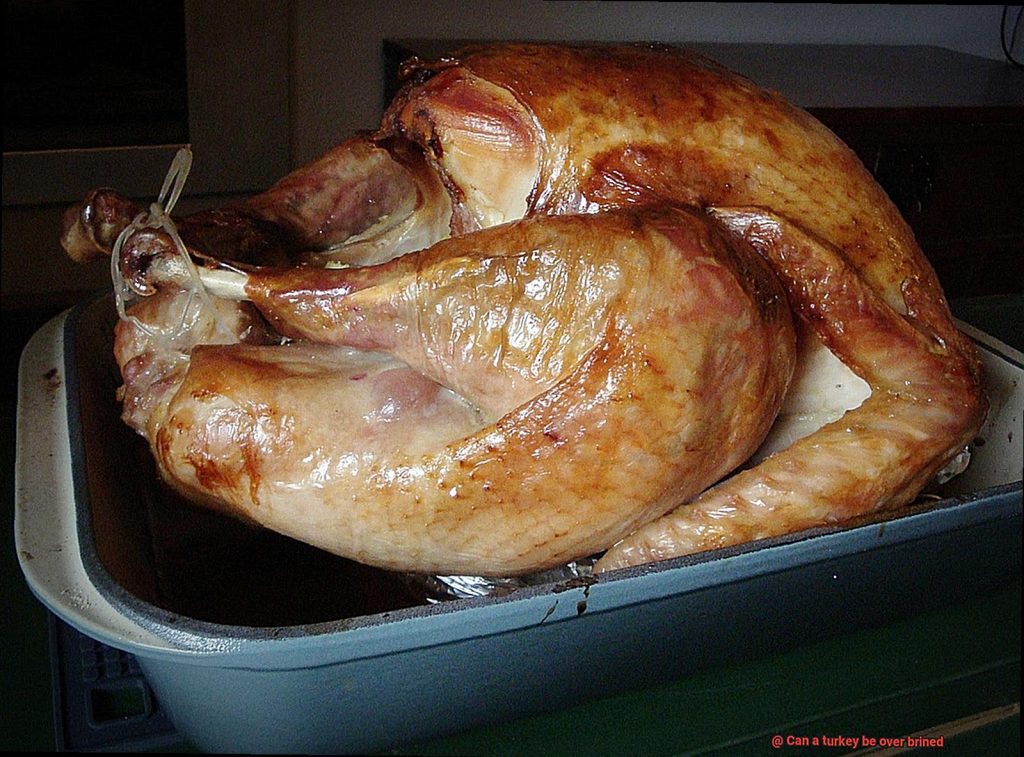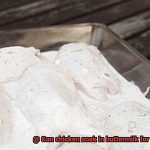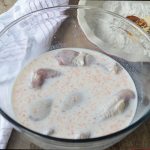Thanksgiving may have come and gone, but that doesn’t mean we can’t keep talking turkey. When it comes to cooking the perfect bird, there are countless techniques to choose from. But one method that’s become increasingly popular in recent years is brining. For those unfamiliar, brining involves soaking the turkey in a salty solution (sometimes with added sugar, herbs, or spices) to help it stay juicy and flavorful during cooking.
Brining has become so ubiquitous that it’s hard to imagine preparing a turkey without it. But what happens if you go overboard with the brine? Can you actually overdo it? This is a question that’s been hotly debated amongst home cooks and professional chefs alike.
Some argue that over-brining can lead to a turkey that’s too salty or mushy. Others swear by long soak times and insist that you can never brine a turkey for too long. So which is it?
In this blog post, we’ll take a closer look at whether or not you can over-brine your bird. We’ll delve into what happens when things go wrong, how to avoid common mistakes, and some tips for achieving the perfect balance of flavors. So sit back, relax, and get ready to master the art of turkey brining once and for all.
Contents
What is Brining?
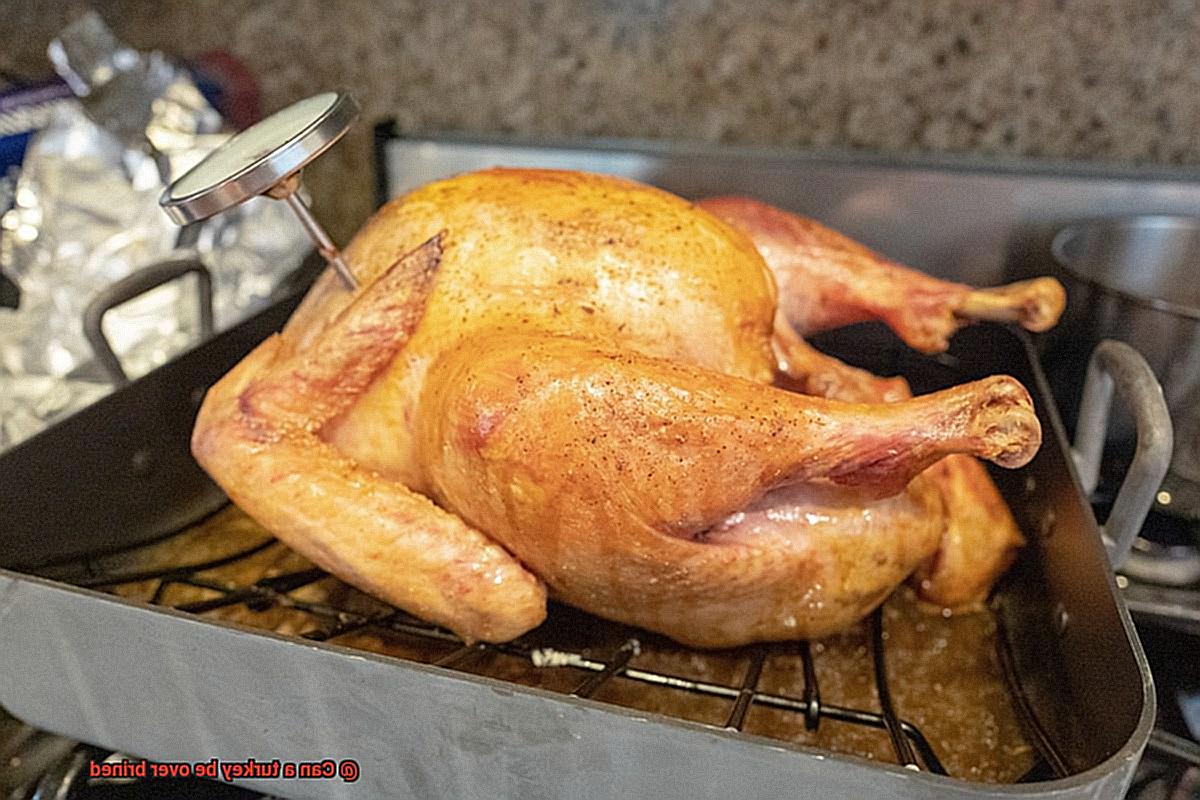
Brining is a culinary technique that has been used for centuries to enhance the flavor, moisture, and tenderness of meat. This process involves soaking the meat in a saltwater solution for a certain amount of time before cooking. The salt in the brine helps to break down the muscle fibers, allowing the meat to absorb more liquid and flavor.
This method can be applied to various meats such as chicken, pork, and fish, but it’s most popular during Thanksgiving for turkey. Brining a turkey ensures that it remains juicy and flavorful during the long cooking process.
To make a brine solution, you will need salt, sugar, and spices such as garlic, thyme, or rosemary. Some recipes may even call for an acidic ingredient like vinegar or citrus juice to further tenderize the meat. The length of time required for brining depends on the size and type of meat you’re using.
It’s important to note that over-brining can ruin your meat by making it too salty and losing its natural flavor. A general rule is to brine for one hour per pound of meat, but it’s best to follow a recipe or guideline to prevent overdoing it. You can also dilute a concentrated brine solution with more water to reduce the amount of salt that your meat absorbs.
Aside from adding flavor and moisture, brining also helps to tenderize the meat by breaking down its muscle fibers. This allows the meat to absorb more liquid and flavor during the cooking process.
What Happens When a Turkey Is Over-Brined?
Brining a turkey can take it to the next level, but over-brining can be disastrous. When a turkey is over-brined, it becomes too salty and may have an unappetizing texture. The reason behind this is that the salt in the brine solution breaks down the proteins in the turkey meat, causing it to lose its natural texture and flavor.
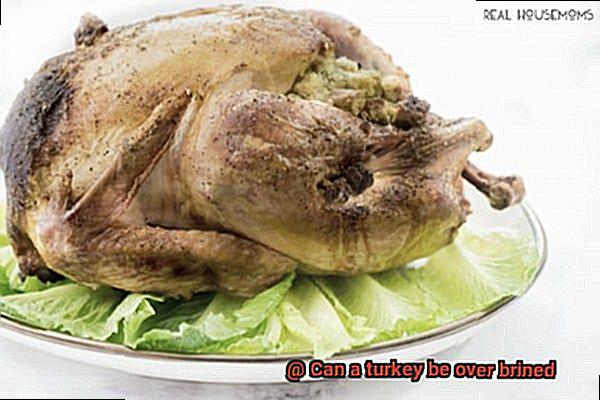
The recommended time for brining a turkey depends on its size, but generally, it should not exceed 24 hours. If left in the brine for too long, the turkey can absorb too much salt, leading to an overly salty taste.
It’s crucial to note that different brine recipes have varying salt concentrations. It’s best to follow a specific recipe and not add extra salt or extend the brining time to prevent over-brining.
If you accidentally over-brine your turkey, there are ways to salvage it. First, rinse the turkey thoroughly with cold water to remove any excess salt. Then, soak it in fresh water for a few hours to help remove more salt. Finally, try seasoning it with fresh herbs and spices to help mask the overly salty flavor.
How Much Time Is Needed to Brine a Turkey?
Brining could be the secret ingredient you’ve been missing. But how do you know how long to brine your turkey?
The general rule of thumb is to allow 1 hour of brining per pound of meat. That means if you have a 12-pound bird, it should be submerged in the brine solution for 12 hours. However, keep in mind that this is just a starting point. The exact time needed can vary depending on the size of the turkey and the type of brine used.
The strength of your brine solution is also a crucial factor to consider. If your solution is more concentrated, it may require less time for the flavors to penetrate the meat. Conversely, a weaker solution may need more time to achieve the desired results.
Temperature is another important factor when it comes to brining times. A colder environment will slow down the brining process, so you may need to allow extra time. On the other hand, a warmer room will speed up the process and require less time.
To ensure that your turkey is evenly flavored and moist, be sure that it’s fully submerged in the brine solution. Any exposed areas or air pockets can result in an unevenly brined turkey, which can lead to unpleasant results.
Lastly, it’s essential to monitor your turkey while it’s brining. Over-brining can result in an overly salty and mushy bird, which is why it’s important not to exceed the recommended time.
Tips to Avoid Over-Brining
Brining a turkey is a great way to add flavor and juiciness to your Thanksgiving meal. However, over-brining can be a common concern for many cooks. Here are five tips to avoid over-brining and ensure that your turkey is perfectly seasoned.
Measure Precisely
When making your brine, it’s essential to measure the ingredients precisely. Too much salt can result in an overly salty brine, so follow the recipe carefully. Avoid adding extra salt to the brine, even if you feel like it needs more seasoning. A good tip is to use a brine calculator to get the right amount of salt and other ingredients.
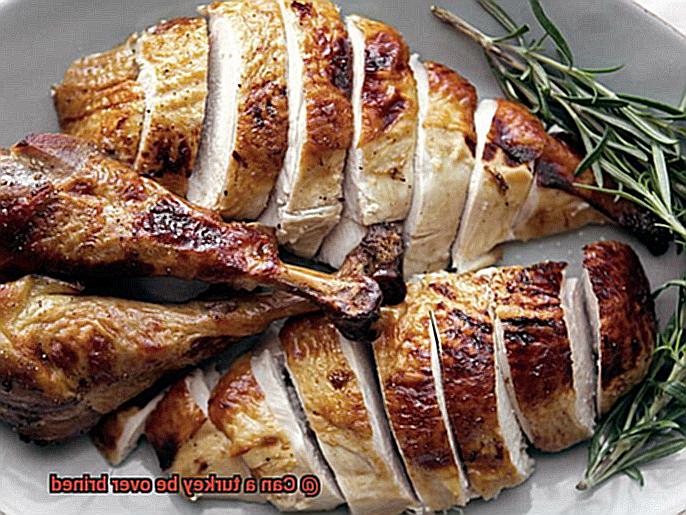
Adjust Brining Time
The size of your turkey will determine the right brining time. A general rule of thumb is one hour per pound of turkey. However, brining for too long can result in an overly salty and unpleasantly seasoned turkey. So, consider the size of your turkey and adjust the brining time accordingly.
Use the Right Container
Using the right container is crucial when brining your turkey. A non-reactive container such as plastic or stainless steel is ideal because reactive metals such as aluminum or copper can react with the acidic ingredients in the brine and affect the flavor of the meat.
Rinse Thoroughly
After removing the turkey from the brine, it’s important to rinse it thoroughly. This will help remove any excess salt or seasoning and prevent an overly salty taste. Rinse both inside and outside of the turkey with cold water for at least 5-10 minutes.
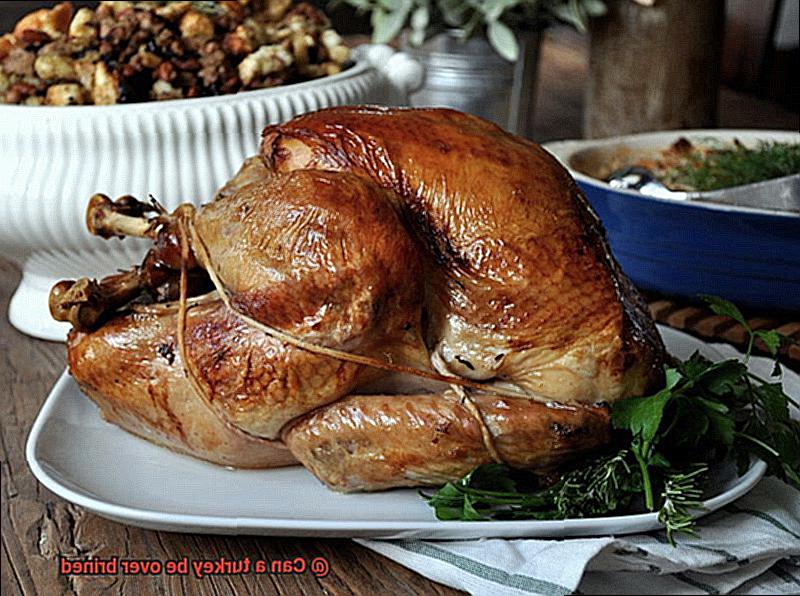
Consider Dry Brining
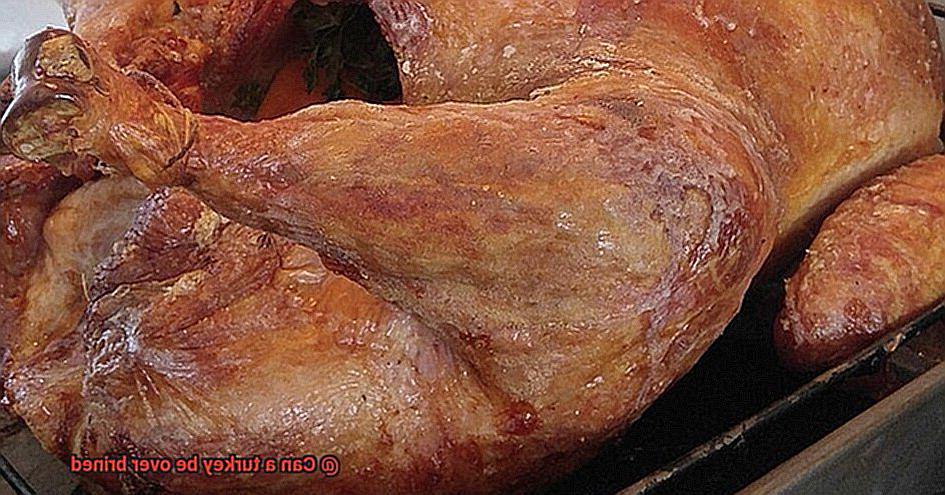
If you’re still concerned about over-brining, consider using a dry brine instead. Dry-brining involves rubbing the turkey with a mixture of salt and other seasonings and allowing it to sit in the fridge for several hours or overnight. This method can be just as effective as wet brining without the risk of over-brining.
The Consequences of Over-Brining
While brining is an excellent way to infuse flavor and moisture into your bird, it’s important to understand the consequences of over-brining. Here’s what you need to know to avoid turning your turkey into a salty, mushy mess.
Firstly, over-brining can make your turkey excessively salty, overpowering any natural flavors or herbs you’ve added. No one wants to taste the Dead Sea in their Thanksgiving turkey. To avoid this, be mindful of how much salt you’re using and how long you’re brining for.
Secondly, too much salt in the brine can break down the proteins in the meat, resulting in a mushy or mealy texture. This can make it difficult to achieve that coveted crispy skin. To prevent this, stick to the recommended brining time and use a proper balance of salt and other flavors.
Lastly, over-brining can cause your turkey to dry out more quickly during cooking. When too much moisture is drawn out of the meat, it becomes tough and dry. This is especially true if you overcook your turkey, exacerbating any dryness caused by over-brining.
Best Practices for Brining a Turkey
As the holiday season approaches, many of us are already thinking about the centerpiece of our Thanksgiving feast: the turkey. And if you want to take your turkey game to the next level, brining is the way to go. But how can you ensure that your brined turkey is perfectly seasoned and juicy? As an expert in this area, I’m here to share some of the best practices for brining a turkey.
First and foremost, it’s crucial to use the correct ratio of salt and water in your brine. Too much salt can make your turkey incredibly salty, while too little may not have any effect on its flavor or texture. For the perfect balance, a general guideline is to use 1 cup of kosher salt for every gallon of water. However, feel free to adjust this based on your personal taste preferences.
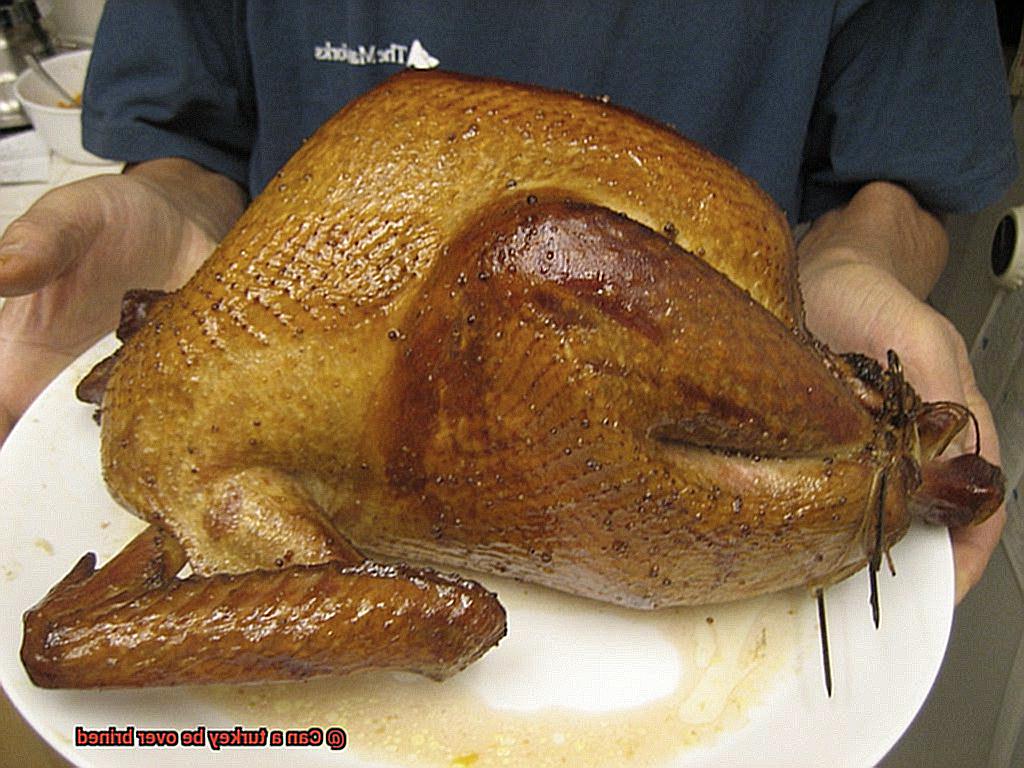
Next, make sure your turkey is fully submerged in the brine. To achieve this, you can use a large container or weight down the turkey with a plate or other heavy object. It’s also essential to keep the brining process refrigerated to prevent bacterial growth.
Timing is crucial when it comes to brining a turkey. While it may be tempting to leave your bird in the brine for longer than 24 hours, resist that urge. Over-brining can result in an unpleasantly mushy texture. Stick to 24 hours or less for optimal results.
Before cooking your turkey, it’s important to rinse off any excess salt and pat it dry with paper towels. This will ensure a crispy skin and proper browning during cooking.
To sum it all up, here are the key best practices for brining a turkey:
- Use the correct ratio of salt and water
- Fully submerge your turkey
- Keep your brining process refrigerated
- Don’t over-brine (stick to 24 hours or less)
- Rinse and pat dry before cooking
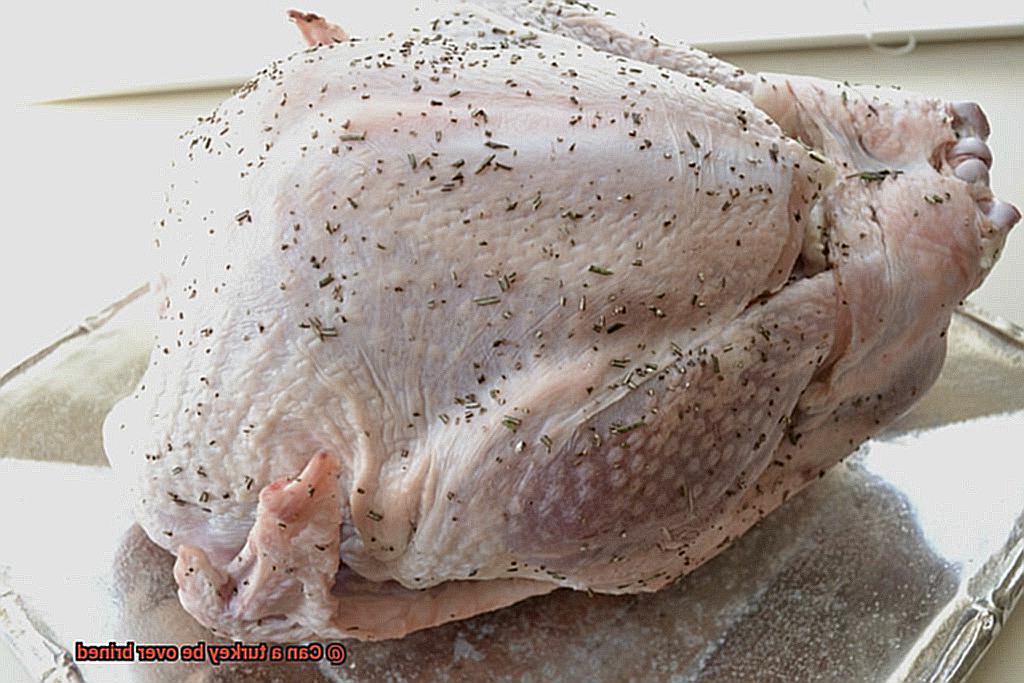
Alternatives to Brining a Turkey
There are plenty of flavorful alternatives to brining that can still result in a delicious and juicy turkey.
One such option is dry-brining. This technique involves rubbing the turkey with a mixture of salt, herbs, and spices, then allowing it to sit uncovered in the refrigerator for several hours or even overnight. The salt draws out moisture from the turkey, but as it sits in the fridge, it gets reabsorbed along with the flavorful seasonings. Dry-brining can result in a crispy skin and juicy meat without the hassle of soaking a turkey in a brine solution.
If dry-brining isn’t your style, you can always try using a rub or marinade. Rubs typically consist of a blend of herbs and spices that are rubbed onto the turkey before cooking. Marinades involve soaking the turkey in a liquid mixture with added seasonings. Both methods can add flavor and moisture to the turkey without requiring a brine solution.
For those who prefer a more straightforward approach, seasoning with salt and pepper before roasting is always an option. By simply seasoning the turkey and placing it in the oven, the natural juices from the bird will create a flavorful and moist dish without any additional effort.
yGc68dldZwU” >
Conclusion
In conclusion, brining a turkey is an exceptional way to elevate the flavor and texture of your Thanksgiving meal. However, it’s crucial to exercise caution when brining, as overdoing it can result in a bird that’s too salty and mushy to enjoy.
To avoid this culinary catastrophe, precise measurements are key. Additionally, adjusting the brining time based on the turkey’s size and using an appropriate container are essential steps. Thoroughly rinsing the turkey after removing it from the brine and considering dry brining as an alternative are also wise precautions.
It’s worth noting that different brine recipes have varying salt concentrations, so following a specific recipe or guideline is paramount. Over-brining can cause proteins in the turkey to break down, resulting in an unpleasant texture and faster drying during cooking.
To ensure even flavor distribution and maximum moisture retention, submerge your turkey entirely in the brine solution. Before cooking, rinse off any excess salt and pat dry with paper towels for optimal results.
If you’re still worried about over-brining or prefer a simpler approach, seasoning with salt and pepper before roasting is always an option.

